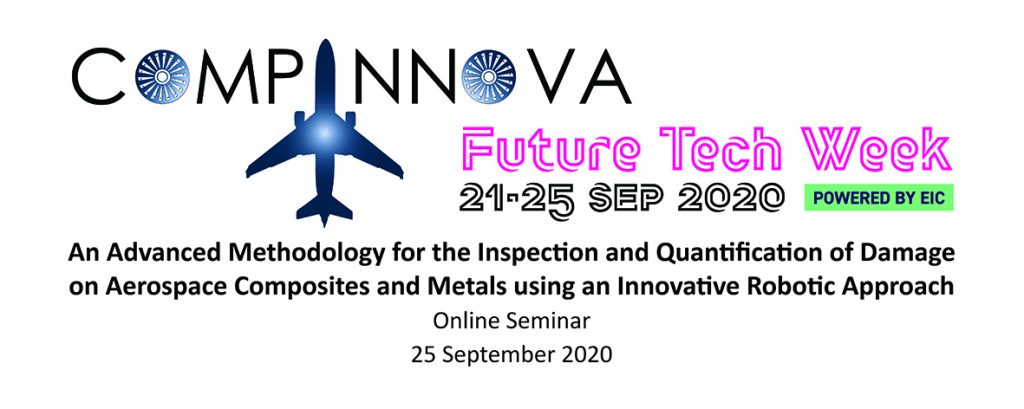
Abstract: Aerospace industries are obliged, from European Aviation Safety Agency (EASA) and Federal Administration Aviation (FAA), to inspect all aircraft components for possible defects/flaws, before and during their service life using reliable and efficient Non Destructive Testing (NDT) techniques. Aircraft maintenance expenditure usually represents 20% of the overall operating cost and inefficient and ineffective inspection procedures can destroy the ability to plan, schedule and reduce labor productivity by 50% or more. The result of an undetected flaw due to inefficient inspection or improper repair may lead to its catastrophic failure and eventually to life and aircraft loss.
To address this need, CompInnova (http://compinnova.net/) is focused upon the development of an innovative inspection methodology, with automated and manual capabilities, for any type of composite and metallic aircraft structures. The novel structural integrity approach is comprised by qualified Phased Array (PA) and Infrared Thermography (IRT) methods attached on multiple vortex-actuated climbing robots, a Damage Tolerance (DT) structural integrity assessment technique processed on a computer and an innovative laser repair system.
Where: MS Teams platform
(Please try to login to the webinar a few minutes in advance. This webinar will be recorded and the video published on the project website and public social media. By entering the webinar you are agreeing to these conditions. For better experience, please have your webcam/video and microphone off. Thank you.)
When: Friday, 25 Sep 2020 from 14:00 to 16:00 CEST
| Agenda | |
|---|---|
| 14:00 – 14:10 | CompInnova: A novel approach for the autonomous inspection and repair of aircraft composite structures – Project Overview
Presenter: Luca Zanotti Fragonara, Cranfield University, UK |
| 14:10 – 14:25 | “A Novel Infrared Thermography Approach for the Rapid Quantitative Assessment of Damage in Aircraft Composites”
Presenter: Konstantinos Dassios, University of Ioannina, Greece |
| 14:25 – 14:30 | Questions/Discussion |
| 14:30 – 14:45 | “On-site Autonomous Ultrasonic Phased Array Inspection of Aircraft Composite structure”
Presenter: Janardhan Padiyar M, Cranfield University, UK |
| 14:45 – 14:50 | Questions/Discussion |
| 14:50 – 15:05 | “Repair of Composite Aerostructures”
Presenter: Dr. Spyridon Psarras, University of Patras, Greece |
| 15:05 – 15:10 | Questions/Discussion |
| 15:10 – 15:25 | “Vortex Climbing Robots for Autonomous Infrastructure Inspection”
Presenter: Georgios Andrikopoulos, Luleå University of Technology, Sweden |
| 15:25 – 15:30 | Questions/Discussion |
| 15:30 – 15:45 | “The role of vortex climbing robots in the future of industrial NDT inspection”
Presenter: José Carregado, OPTIMAL, Portugal |
| 15:45 – 16:00 | Questions/Discussion |
Moderator: Joao Raposo, Cranfield University, UK
| Speakers | |
|---|---|
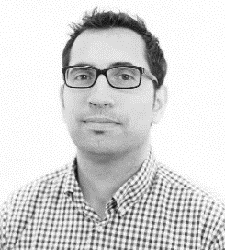 |
Luca Zanotti Fragonara, is a lecturer and researcher involved in the activities of the Centre of Autonomous and Cyber-Physical Systems and in the Aerospace Integration Research Centre at Cranfield University. Since January 2019, he is the Course Director for the MSc in Applied Artificial Intelligence. His research is focused on structural health monitoring, artificial intelligence, perception for autonomous systems and system identification. He has been involved in a series of high-impact European research projects (FP7-Series, FP7-Unplugged, FP7-Fabric, H2020 FET-OPEN CompInnova, H2020 ITN XP-Resilience) and competitive funded research projects in autonomous inspections using robots and drones for aerospace structures structural health monitoring and for increasing the resilience of industrial plants. He is supervisor of 9 PhD students. He co-authored 2 book chapters and 30+ papers in international peer-reviewed journals. |
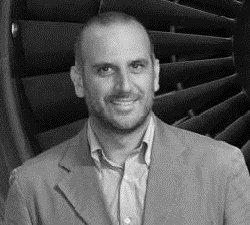 |
Konstantinos Dassios, Assistant Professor, holds a B.S. (University of Patras) and M.Sc. (Carnegie Mellon University, USA) in Chemical Engineering and PhD on the Fracture Mechanics of Ceramic Matrix Composites (Joint Research Centre, European Commission, The Netherlands). His research interests focus on the processing and characterization of nano-modified inorganic matter, efficiency of dispersion of carbon nanospecies in aqueous media, synthesis of graphene and aligned CNT arrays and non-destructive evaluation (NDE) of advanced nanocomposites. He has lead, as PI for the University of Ioannina, two European Commission Horizon 2020 projects. |
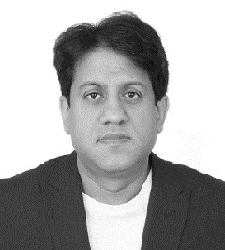 |
Janardhan Padiyar M. is a Senior Research Fellow in NDT of aerospace components at the Centre for Autonomous and Cyber-Physical Systems, Cranfield University, UK where he is mainly involved in technical delivery of H2020 EU project CompInnova since 2016. He started his professional NDT career as Project Associate at Centre for Nondestructive Evaluation (CNDE) at ICSR, IIT Madras, India working on different national projects such as NPSM and NPMaSS involving SHM of composites. He received his Ph.D. from Indian Institute of Technology (IIT) Madras, India in 2014, where he worked on developing inspection techniques using ultrasonic Lamb waves for NDT and SHM of aircraft structures. He also served as a Scientist Fellow in Non-Destructive Testing Lab., for 3 years in Advanced Composite Division (ACD) of CSIR-National Aerospace Laboratories (NAL), Bangalore, India which develops composite parts for defense aircrafts. His current research interest’s covers modeling ultrasonic wave propagation, ultrasonic Phased Array imaging, Air-Coupled ultrasonic and Structural Health Monitoring. |
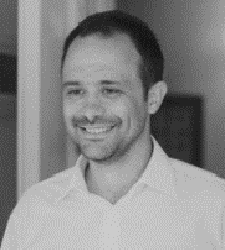 |
Spyridon Psarras is a senior researcher at University of Patras with a PhD in Aeronautical Engineering from Imperial College of London. His research is focusing on failure and design of composite structures. Among his skills are design for Damage Tolerance, parametric models/Python scripting, manufacturing and Testing Procedures, detailed damage modelling. He received his first degree in the Department of Mechanical and Industrial Engineering, University of Thessaly, and specialized (MSc) in Computational Engineering at NTUA. He worked in industry at Gefyra S.A and IMAS S.A. While being at ICL he was awarded with scholarship from EPSRC and worked as Research Associate and ICL Consultant. Also at ICL, he was the Postdoc Rep of the department of Aeronautics and the Postdoc Rep of the Faculty of Engineering. |
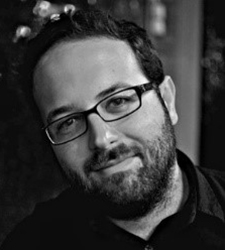 |
Georgios (George) Andrikopoulos was born in Patras, Greece, in 1986. He is a graduate of the Electrical and Computer Engineering Department, University of Patras, and received his Ph.D degree in the field of Automatic Control Engineering from the same university, in 2015. He is currently working as a Researcher / Post-Doc with the Robotics Team at the Luleå University of Technology in Sweden. His research interests are focused on the design, development and control of autonomous robotic systems through the use of soft and compliant actuators, climbing robotic solutions for industrial inspection, exoskeletons for medical purposes, as well as collaborative home service robotics. He has been involved in the technical implementation, scientific or overall management of several European and National R&D projects on biorobotics, inspection and industrial robotics, including H2020 RIA FETOPEN “COMPINNOVA”, H2020 RIA ICT “AEROWORKS”, H2020 IA CE “SIMS” and Swedish Research Council (Swedish Research Council) “BAHRT”. He has also initiated multiple national research collaborations funded by Swedish Universities and Colleges, as well as an international collaboration with HONDA Research Institute Japan. He has served as a reviewer for several high-impact international journals and conferences, he is a member of IEEE (CSS, RAS, IES, Young Professionals) and a member of the Socially Intelligent Robotics Consortium. |
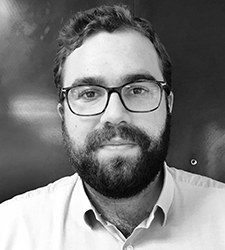 |
José Carregado acquired his Double Degree MSc. in Aerospace Engineering from Instituto Superior Técnico (Portugal) and Politecnico di Torino (Italy). He specialized in structural dynamics of nonlinear aircraft structures and developed his final thesis at the University of Victoria (Canada) within the framework of Boeing R&T joined-wing sensorcraft project. Subsequent to his graduation, José joined OPTIMAL in 2018 as a CAE Engineer, engaging in the design and optimization of lightweight composite structures. He has since 2019 been involved in R&D projects at OPTIMAL. Focusing on the aeronautics field, he currently manages CleanSky2 PASSARO, Horizon2020 ReMAP and Horizon2020 CompInnova. |
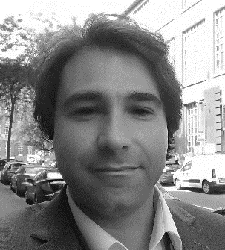 |
Joao Raposo is a Project Manager of the School of Aerospace at Cranfield University and contributing to the Search and Optimisation module delivery in Applied Artificial Intelligence MSc. He is MSc in Mechanical Engineering from Técnico Lisboa, University of Lisbon, specialized in Multi-Criteria Decision Aid. He has a post-graduation in Project Management and Advanced Studies Diploma (PhD curricular credits) in Sustainable Energy Systems from the Massachusetts Institute of Technology – Portugal Programme. He is also is a Lean Six Sigma Black Belt from the Lisbon University. Has 10+ years’ experience in managing and coordinating EU projects, since FP7 (and CIP) to H2020 programmes, having worked both in Portugal and in the UK as Project Manager. |
